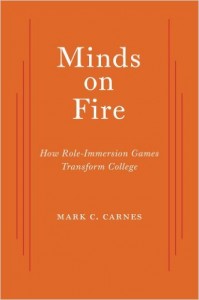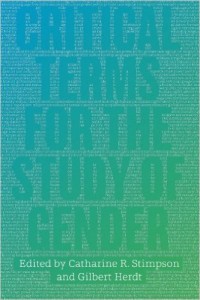Choice: Current Reviews for Academic Libraries compiles critical reviews of newly published books, eresources, and reference materials to help libraries develop excellent collections. The Choice subject editors recognize the most significant titles reviewed during each calendar year by compiling the “Outstanding Academic Titles” (OAT) list, which is published each January.
Summary (from Amazon.com) – Americans tend to cast slavery as a pre-modern institution—the nation’s original sin, perhaps, but isolated in time and divorced from America’s later success. But to do so robs the millions who suffered in bondage of their full legacy.
As historian Edward Baptist reveals in The Half Has Never Been Told, the expansion of slavery in the first eight decades after American independence drove the evolution and modernization of the United States. In the span of a single lifetime, the South grew from a narrow coastal strip of worn-out tobacco plantations to a continental cotton empire, and the United States grew into a modern, industrial, and capitalist economy. Until the Civil War, Baptist explains, the most important American economic innovations were ways to make slavery ever more profitable. Through forced migration and torture, slave owners extracted continual increases in efficiency from enslaved African Americans. Thus the United States seized control of the world market for cotton, the key raw material of the Industrial Revolution, and became a wealthy nation with global influence.
Told through intimate slave narratives, plantation records, newspapers, and the words of politicians, entrepreneurs, and escaped slaves, The Half Has Never Been Told offers a radical new interpretation of American history. It forces readers to reckon with the violence at the root of American supremacy, but also with the survival and resistance that brought about slavery’s end—and created a culture that sustains America’s deepest dreams of freedom.
Carnes, Mark C. Minds on fire: how role-immersion games transform college.
In Minds on Fire, Carnes shows how role-immersion games channel students’ competitive (and sometimes mischievous) impulses into transformative learning experiences. His discussion is based on interviews with scores of students and faculty who have used a pedagogy called Reacting to the Past, which features month-long games set during the French revolution, Galileo’s trial, the partition of India, and dozens of other epochal moments in disciplines ranging from art history to the sciences. These games have spread to over three hundred campuses around the world, where many of their benefits defy expectations. Students think more critically by internalizing alternative selves, and they understand the past better by filtering it through their present. Fierce competition between opposing sides leads to strong community bonds among teammates and develops speaking, writing, leadership, and problem-solving skills.
Minds on Fire is a provocative critique of educational reformers who deplored role-playing pedagogies, from Plato to Dewey to Erikson. Carnes also makes an impassioned appeal for pedagogical innovation. At a time when cost-cutting legislators and trustees are increasingly drawn to online learning, Carnes focuses on how bricks-and-mortar institutions of higher education can set young minds on fire.
Critical terms for the study of gender, ed. by Catharine R. Stimpson and Gilbert Herdt.
Summary (from Amazon.com) – “Gender systems pervade and regulate human lives—in law courts and operating rooms, ballparks and poker clubs, hair-dressing salons and kitchens, classrooms and playgroups. . . . Exactly how gender works varies from culture to culture, and from historical period to historical period, but gender is very rarely not at work. Nor does gender operate in isolation. It is linked to other social structures and sources of identity.”
So write women’s studies pioneer Catharine R. Stimpson and anthropologist Gilbert Herdt in their introduction to Critical Terms for the Study of Gender, laying out the wide-ranging nature of this interdisciplinary and rapidly changing field. The sixth in the series of “Critical Terms” books, this volume provides an indispensable introduction to the study of gender through an exploration of key terms that are a part of everyday discourse in this vital subject.
Following Stimpson and Herdt’s careful account of the evolution of gender studies and its relation to women’s and sexuality studies, the twenty-one essays here cast an appropriately broad net, spanning the study of gender and sexuality across the humanities and social sciences. Written by a distinguished group of scholars, each essay presents students with a history of a given term—from bodies to utopia—and explains the conceptual baggage it carries and the kinds of critical work it can be made to do. The contributors offer incisive discussions of topics ranging from desire, identity, justice, and kinship to love, race, and religion that suggest new directions for the understanding of gender studies. The result is an essential reference addressed to students studying gender in very different disciplinary contexts.





0 Comments.